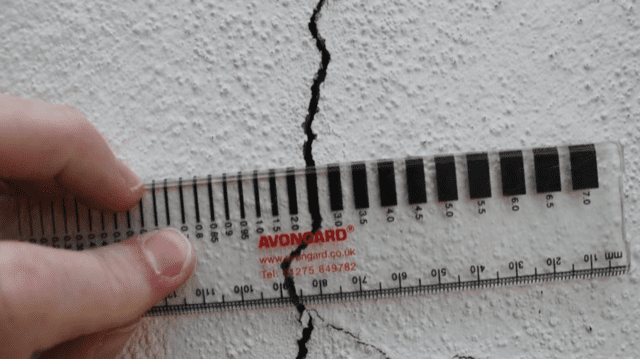
A RETIRED fireman has said his Limerick home is one of a number of houses in the region, crumbling under the strain of defective blocks.
Kevin Hayes, who gave 30 years service to Limerick City and County Fire and Rescue Service, said he fears he and his family are not safe in their own home, which was built in 1994.
Mr Hayes, (73), who lives with his wife and adult son, in Rhebogue, has called on the Minister with responsibility for Planning and Local Government, Peter Burke, to extend a Defective Concrete Blocks Scheme, which is available in other parts of the country, to Limerick.
However Minister Burke has indicated he has no plans to do this as yet.
Mr Hayes went public after reading, last week, how Askeaton couple Anne and Kieran Ryan were also in fear their house would cave in around them due to defective blockwork.
Mr Hayes said: “I noticed the cracks in my house in 2006 and they have worsened over the years. I got a builders quote in 2017 to fix the problem, but it was for €69,000, and I’m retired from the fire service, I can’t afford that, and my insurance company said to me they wouldn’t cover the cost of it.”
A 2017 engineers report, following an inspection on Mr Hayes house, found that cracking on the property’s external walls “are indicative of a significant structural defect” and not associated with typical shrinkage cracking.
Mr Hayes said: “If the cracks get into the inner layer of blockwork, the house will have to be demolished, that’s what I’ve been told.”
“I’ve had sleepless nights over this, and I cannot understand why the government will not extend the scheme nationwide immediately, what’s the difference between my house and the houses in Donegal and Mayo that have been affected in the same way.”
“It has been an awful metal strain on us,” he added.
The engineer’s report concluded that the cracks in Mr Hayes’s home were due to “defective blockwork”.
The report’s author said its firm has seen “similar patterns of cracking in other houses in the Co Limerick and Co Clare areas”.
The report added that “similar issues with blockwork have have been observed in Co Donegal and Co Mayo and these appear to be due to the presence of mica and / or pyrite in the blockwork”.
It also recommended the replacement of all of the property’s outer blockwork as well as the chimney stack.
Fine Gael TD Kieran O’Donnell raised the matter with Minister Burke who replied in a letter, dated May 18th, “while there has been an increase in enquiries received on the issue, my department has not received any submissions detailing the extent of defects identified on dwellings in Co Limerick.”
The minister suggested there was “an opportunity here for the Council to take the lead and first of all demonstrate that the purported issues in Limerick are in fact due to the presence of excessive amounts of deleterious materials (mic or pyrite) in the aggregate used to manufacture the concrete blocks, and secondly quantify the extent of the problem in the area, which would be very helpful to the department in its deliberations”.
An extinction of the Defective Concrete Blocks Grant Scheme to Limerick would require “the same rigorous analysis as that put in place prior to the rollout of the scheme in donegal and mayo” and would be “subject to budgetary discussions”, Minister Burke went on.
Deputy O’Donnell said the government was presently reviewing the situation.
Arguing for an extension of all pyrite and mica remediation and redress schemes to Limerick, Deputy O’Donnell said: “This is about people’s homes, it is a human story, and Limerick people, through no fault of their own, are now living in homes that are impacted by mica and pyrite.”
A pyrite remediation scheme to correct defects in foundations only, and not blockwork, was extended to Limerick last year.
Fifteen households in Corbally whose foundations were impacted by pyrite are to be included in this scheme, said former mayor, Fine Gael Senator Maria Byrne.
Backing calls for extensions of the blockwork scheme to Limerick, she also advised homeowners in the county to join together and make group applications for remediation.
Twenty million euro was provided under Budget 2020 to cover the scheme, bringing to approximately €150m the total funding provided since 2014.








